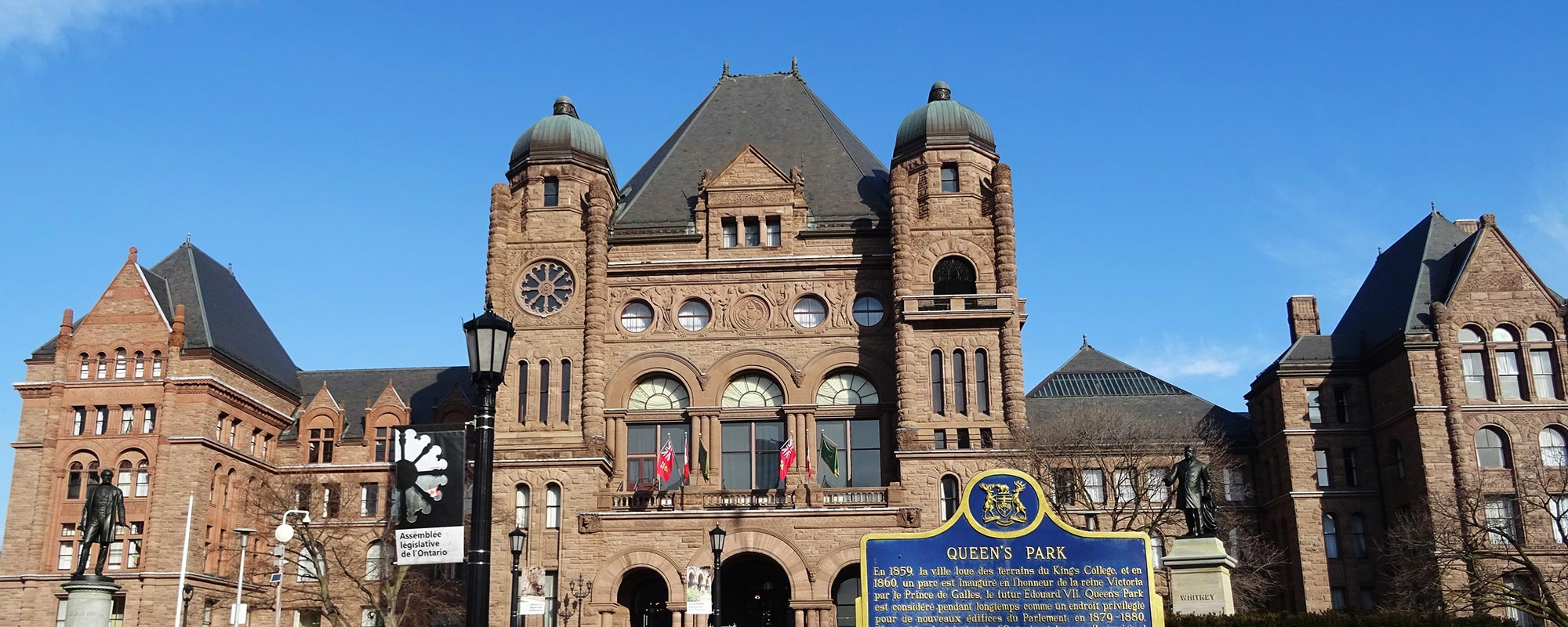July 20, 2020 COVID’s first wave may be waning in Ontario, but if the government has its way, its grip on emergency power isn’t going anywhere. The Ontario government is trying to end the legal state of emergency and simultaneously hold on to extraordinary emergency powers. A new bill introduced on July 7, 2020 would effectively extend the government’s emergency powers while eliminating key oversight mechanisms – in the name of “flexibility”. It is a fundamentally anti-democratic move, and to make matters worse, the government has introduced a time allocation motion that will allow the bill to be passed without even undergoing a review by a legislative committee and with severely limited debate. Ontarians need to push back. The existing emergency law in Ontario confers enormous powers on the Premier and the executive branch. This is the law the provincial government has invoked to close public spaces, shutter schools and businesses, redeploy health care workers, override collective agreements, freeze residential evictions, severely restrict social, religious and cultural gatherings, and authorize the issuance of over $2.4 million in fines, to date, for alleged non-compliance. In short, to confront an unprecedented pandemic, it has been used to compel unprecedented restrictions on individuals’ liberties. Ontario’s existing emergency law has some key checks on the use of these emergency powers. The current law, for example, requires that the legislative assembly approve extensions of the state of emergency every 28 days. It is a simple but essential democratic stop on the enormous authority given to the Premier and government Ministers during an emergency. It provides a chance for justification, discussion, debate, dissent, and ultimately gives authority to our individual elected representatives to decide whether these extraordinary powers should continue to be granted. Even in a majority government individual MPPs retain the ability to break rank and vote with their conscience rather than toe the party line. The Reopening Ontario Act, would maintain the existing emergency powers while freeing the executive branch of effective democratic oversight. It eliminates the need for the government to declare an ongoing public health emergency and seek the legislative assembly’s approval of continued extensions. These powers would instead be conferred for one year – subject to potentially indefinite renewal with the legislature’s approval. By definition, an emergency cannot become the status quo. An emergency, for legal purposes, is literally exceptional. Emergency powers must be exceptional too. The virus is a part of our world, and while we figure out if and how we can get rid of it (which the science seems to indicate is unlikely for the foreseeable future), we will also have to figure out how to live with it in a society that respects democratic principles and that values human rights and civil liberties. No doubt it is a hassle to have to go back to the legislature every thirty days to extend the state of emergency. It should be. Democracy is designed to place meaningful checks on powers. During emergencies these democratic checks and balances are even more critical. The new Act is also being pitched as only giving the Ontario government authority that is more limited. It only enables the amendment, extension, or revocation of existing orders – new orders could not be passed without re-invoking the current emergency legislation. But the emergency measures already on the books reach into every facet of Ontarians’ lives. And the definition of amendment in the proposed law specifically allows the executive branch to impose “more onerous or different requirements” and extend – geographically or otherwise – the application of existing orders. Orders can even be amended to apply retroactively and the amendment power is expressly excluded from regular reporting requirements. The government’s proposed ‘limit’ on its powers of amendment is so broad as to be meaningless. The Ontario government wants to convince the population that we are easing back into normalcy while retaining enormous power. At some point the state of emergency must end. The decision about when that occurs must be subject to democratic oversight. And if we are not at the end yet, let there be rational, proportionate, necessary emergency measures. But don’t try to convince us there is anything normal about government retaining extraordinary emergency powers while undercutting democratic accountability.
About the Canadian Civil Liberties Association
The CCLA is an independent, non-profit organization with supporters from across the country. Founded in 1964, the CCLA is a national human rights organization committed to defending the rights, dignity, safety, and freedoms of all people in Canada.
For the Media
For further comments, please contact us at media@ccla.org.





